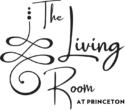Alcohol abuse can affect your mind and body in many ways. Long periods of alcohol use can increase the risk of serious health complications, including stroke, cancer, and heart disease. Alcohol abuse can also impact a person’s mental health, increasing the risk of depression and other conditions.
Alcohol use disorder (AUD) may also affect a person’s appearance. Prolonged alcohol abuse can take a toll on a person’s physical health. It may increase bloating, cause weight changes, and affect hair and skin health.
Alcohol nose is a slang term people may use to describe swollen, red noses. People may think alcohol abuse causes this condition–but does it?
This article will explore what causes alcoholic nose. You will learn:
- How alcohol affects the nose
- What may cause alcoholic nose
- How to recognize alcohol abuse and addiction
- What happens in AUD treatment
- Where to find comprehensive treatment and recovery support
If you or someone you love needs help to stop drinking alcohol, you are not alone. Find compassionate, comprehensive treatment programs at The Living Room. Contact our intake team to learn about our rehab and recovery programs or to schedule an intake appointment.
What is Alcoholic Nose?
Some people may use the term “alcoholic nose” to describe a large, red, bulbous nose. The medical term for this condition is rhinophyma. Other slang terms for alcoholic nose include:
- Gin nose or gin blossom
- Cauliflower nose
- Potato nose
- Whisky nose
- Rum nose
- Drinker’s nose
While this condition may be referred to as “alcoholic nose,” research shows that it is unlikely this condition is a result of alcoholism. So, what may cause someone to develop rhinophyma?
Medical experts believe people may develop “alcoholic nose” because of a condition called rosacea. People with a family history of rosacea are at risk of developing this condition. Some of the symptoms of rosacea include:
- A burning sensation on the skin
- Swollen pimples or bumps on the skin
- Reddening or flushing of the face
- Broken blood vessels on the facial skin
- Eye problems
People who have rosacea may develop symptoms of rhinophyma on the nose. Symptoms of rhinophyma include:
- Thickened skin on the nose
- Swelling of the nose
- The skin of the nose becomes red or purple
While rosacea is more common among women, rhinophyma is more common in men. People may treat rosacea and rhinophyma with oral antibiotics, topical azelaic acid, and surgical treatments.
Some medical experts believe alcohol abuse may worsen the symptoms of rosacea. However, there is no connection between alcohol abuse and rhinophyma (alcoholic nose)
What are the Signs of Alcohol Abuse and Addiction?
Alcohol abuse can cause many severe short and long-term side effects. Without treatment, alcohol abuse can turn into a life-threatening addiction. It is essential to recognize the symptoms of alcohol addiction and seek treatment as quickly as possible.
Some signs of alcohol addiction include:
- Frequent heavy drinking (for women, drinking more than eight drinks in a week, and for men, more than fifteen drinks per week)
- Needing to drink more to get “buzzed” or being able to drink a lot without appearing intoxicated
- Experiencing withdrawal symptoms if they drink less or stop drinking
- Having cravings for alcohol
- Having legal, social, or financial trouble related to alcohol use
- Doing risky things while drinking, like driving drunk or having unprotected sex
- Spending a lot of time getting more alcohol, drinking, or recovering from hangovers
- Continuing to drink, even though it causes significant problems
Long periods of heavy drinking can change the body and brain. These changes can make it very hard for someone to stop drinking when they choose.
Most people with alcohol addiction require intensive detox and treatment services to stop drinking. They may also need ongoing support or treatment to avoid relapse.
What to Expect from Alcohol Use Disorder (AUD) Treatment
Alcohol addiction treatment programs combine evidence-based therapies and holistic treatments. People receive tailored care to address the unique physical, emotional, and behavioral aspects of their AUD.
An alcohol addiction treatment program may consist of:
- A medically-supported detox program (supervision, medications, mental health care)
- Behavioral therapies
- Individual, family, and group counseling
- Relapse prevention education
- Holistic therapies like yoga, mindfulness, creative expression, and nutrition support
- Aftercare planning and support
People may attend inpatient or outpatient programs. Before starting treatment, each person will undergo an assessment to determine which levels of care and types of treatment would support their goals.
Overcoming alcohol abuse and addiction can be challenging. However, finding the right support and treatment can help people put alcohol abuse in the past and work toward a healthier future.
Find Treatment Now
Alcohol abuse can change how you look, feel, think, and behave. If you or someone you love struggles with alcohol abuse or addiction, you are not powerless. Find the support and treatment you need at The Living Room. Contact our intake team to learn about our programs or to schedule an intake appointment.
References:
- National Institute of Health (NIH): Effects of Acute Alcohol Intake on Nasal Patency
- Science Direct: Alcohol-induced upper airway symptoms: prevalence and co-morbidity


